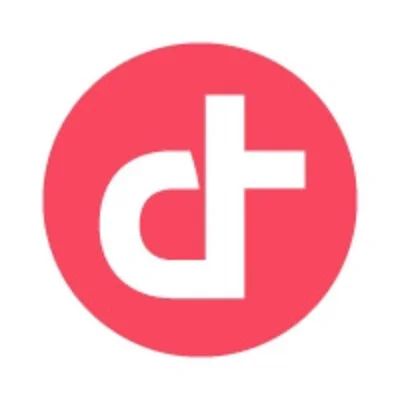Job description
About Quandela :
Quandela is a French deeptech company building Europe’s first general-purpose photonic quantum computers. Our machines are already available through the cloud, and now also delivered on-premise.
Beyond hardware, we develop the full software stack :
Perceval, our open-source simulation library,
Merlin, our platform to program and run quantum algorithms,
Cloud and on-site deployment for academic and industrial clients.
In 2024, as part of the EuroQCS-France consortium (GENCI & CEA), Quandela is giving the European research community early remote access to a 6-qubit photonic quantum computer. This precedes the 2025 on-site deployment of Lucy, our 12-qubit system at CEA’s TGCC, marking a milestone that combines HPC and quantum in one hybrid infrastructure.
Read more - ‘Lucy’ : Quandela & Genci x EuroQCS
This creates new needs: researchers will start using our quantum systems — from algorithms to QPU infrastructure — both remotely and on site, and they expect immediate, reliable, high-level support.
That’s why we are building a dedicated support cell.
Your role will focus on the algorithms side - making sure codes and workflows actually run, feedback loops into R&D/Product - soon accompanied by a QPU-focused counterpart to cover the full stack.
Why this role matters ?
This isn’t “classic support.” You’ll be the single point of contact for GENCI/CEA researchers, ensuring that Europe’s first photonic quantum computer is usable, reliable, and impactful from day one.
You will :
- Help researchers run and debug algorithms on real hardware (photonic QPU)
- Be the visible link between researchers, hosting teams, and Quandela’s R&D
- Guarantee healthy collaboration and user satisfaction
- Contribute to community building around Perceval and Merlin
This role is strategic and highly visible - for Quandela, for CEA, and for the French quantum ecosystem. It’s about enabling pioneering algorithms to become real quantum applications on a national-scale system.
What you’ll do :
Manage tickets on code execution, compilation, scripts, and performance.
Debug issues in algorithms and environments; install and update applications; advise on libraries and tools.
Provide user training (1-to-1, workshops), maintain technical documentation.
Engage in weekly technical reviews and quarterly site meetings with hosting-site (HS/HLST) teams.
Ensure service continuity: when you are away, you coordinate handover.
Work closely with Algo, Software, Product, and Sales teams inside Quandela.
Collaborate with the upcoming Support QPU Engineer, creating a coherent “support cell.”
Channel structured feedback from users to R&D/Product, influencing our roadmap.
On-site presence
> 2 days a week at CEA’s Très Grand Centre de Calcul (TGCC) in Bruyères-le-Châtel (Essonne) - home of the Joliot-Curie supercomputer. Being close to the machine and the teams is what makes this support strategic and impactful.
> The rest of the time : hybrid from Massy/Paris-Saclay
/
How you’ll grow :
0–3 months: onboarded on ticketing and HS workflows; handle simple tickets; draft first documentation; run initial training.
3–6 months: established as trusted SPOC; deliver clear docs; identify recurring pain points; propose fixes.
6–12 months: move from reactive support to proactive enablement: organize workshops, animate user community, propose KPIs and best practices for the support cell.
Longer term ( for those who want it) : potential evolution toward technical evangelism (external events, workshops) and/or leadership within a growing support team.
How success will be measured ?
SLA on ticket response/resolution.
User satisfaction feedback (GENCI/CEA).
Contribution to 4 algorithms developed with CEA users in 12 months.
Adoption and active use of Merlin/Perceval.
Positive feedback from R&D/Product on quality of insights shared.
/
Profile We Value :
> Must-have
Advanced Python (backbone of Merlin/Perceval and the scripts you’ll debug daily).
Familiarity with at least one quantum framework (Qiskit, Perceval, Cirq, etc.).
Strong debugging and documentation rigor.
Ability to explain technical issues clearly to researchers.
Professional English + conversational French (daily work with CEA and Quandela teams).
> Important (can grow, but appetite needed)
Basics in HPC or applied maths/QML to follow user problems.
Experience in research contexts: e.g. helping a nuclear fusion researcher debug an algorithm that won’t run.
First exposure to training or documentation — or appetite for it.
> Bonus Points
Experience in EuroHPC, CNRS, CERN, or other infrastructures.
Public-facing workshops or community events.
Prior exposure to our quantum software ecosystems (Merlin/Perceval is a plus, but learnable).
> Backgrounds that could fit ? For this role, we’re looking for a background in engineering (e.g., in optics or mathematics) or a Master’s degree where the ability to evolve in a complex environment is key. We particularly value experience from fields :
HPC/application support engineers,
Researchers (applied maths, CS, physics) moving into client-facing roles,
Engineers from research infrastructures (e.g. EuroHPC).
Why Join ?
- Be part of Quandela’s first national quantum computer delivery (GENCI / CEA).
- Work on a real QPU, support real algorithms, interact with top researchers.
- Grow from support into community building, technical evangelism, and product feedback.
- Contribute to Europe’s roadmap in quantum — with applications today, and a vision to 2030 and beyond.
What We Offer :
Salary: €45–60k depending on scope:
45k: strong support experience, ready to grow.
50–55k: autonomous, can handle complex issues.
60k: senior, able to contribute to community and product feedback.
Profit-sharing & company savings plan.
100% health coverage (Alan), Swile meal vouchers, transport/mobility support.
Daily exposure to 150+ colleagues, 31+ nationalities, including top scientists.
A Final Word on ‘Support’ !
At Quandela, support is not a back-office function. It is where science meets reality.
As a Support Engineer, you are the bridge between pioneering researchers and a working quantum machine. The algorithms you help run will shape both today’s experiments and tomorrow’s roadmap.
Support here means:
Giving researchers confidence their ideas can be tested and scaled.
Protecting the value of a national quantum investment.
Connecting the dots between users, R&D, and product evolution.
It’s strategic, it’s vital and it’s the kind of support that defines whether Europe succeeds in quantum computing adoption.
So … If you’re ready to turn quantum promise into real impact for researchers across Europe, let’s talk 😁






